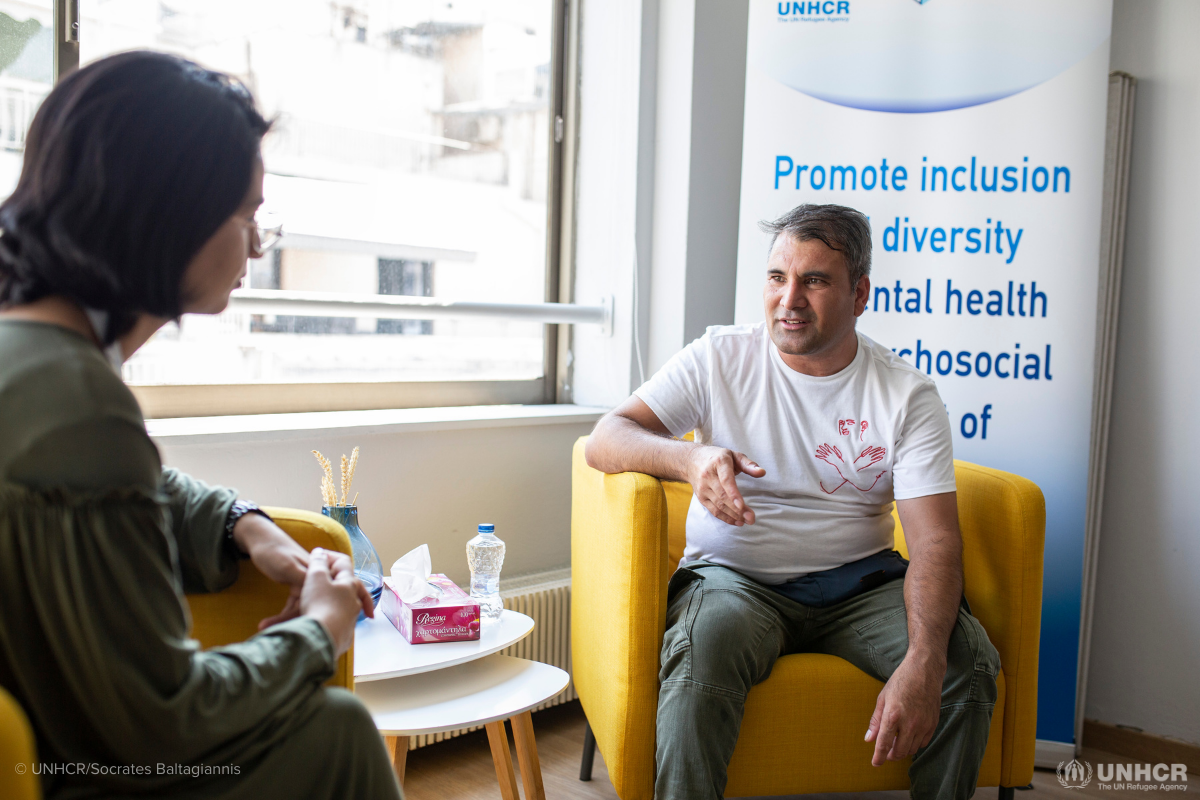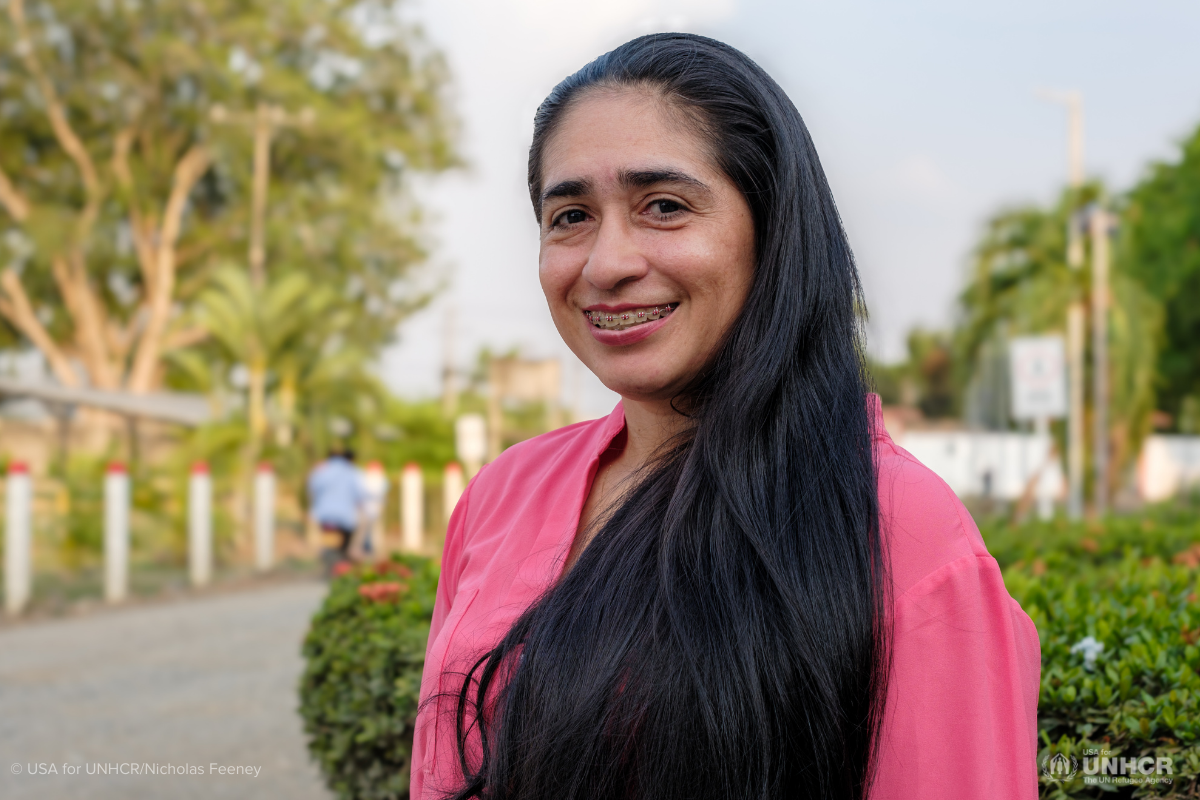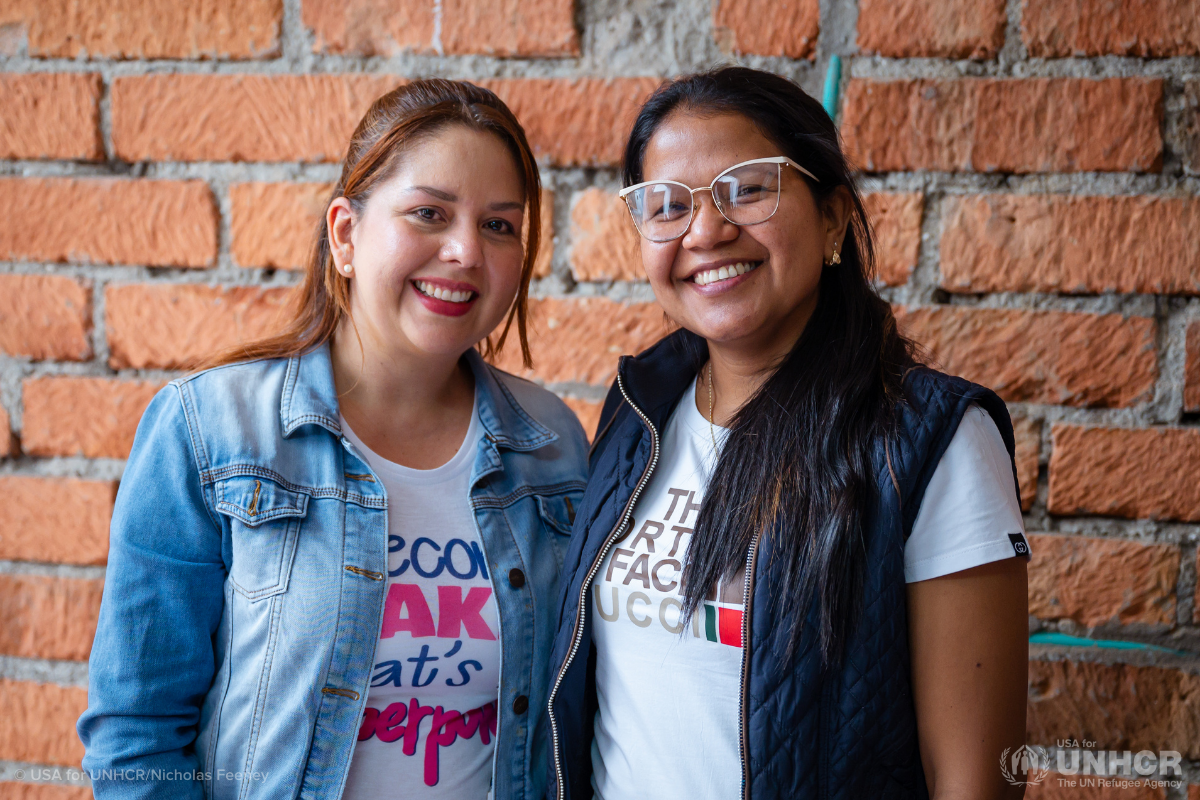U.S. resettlement program gave this former refugee from South Sudan a chance at a new life
Biar Kuek is a former refugee from South Sudan and the founder of the South Sudan Center of America, a nonprofit that assists refugees. He started his life in the U.S. as a janitor, earned a bachelor's degree in accounting, an MBA and now owns and operates a real estate business, is the co-founder of a tax and business advisory firm, while working at a Fortune 500 company as a contract audit manager. In 2014, he was named to Fortune Magazine's ‘Heroes of the 500’ for helping others suffering from persecution and poverty. Biar is the Nevada delegate for Refugee Congress and a board member for USA for UNHCR.
USA for UNHCR Communications Manager Nicholas Feeney spoke with Biar to talk about his experience as a refugee, about making the U.S his home and about his advocacy work in the refugee community.
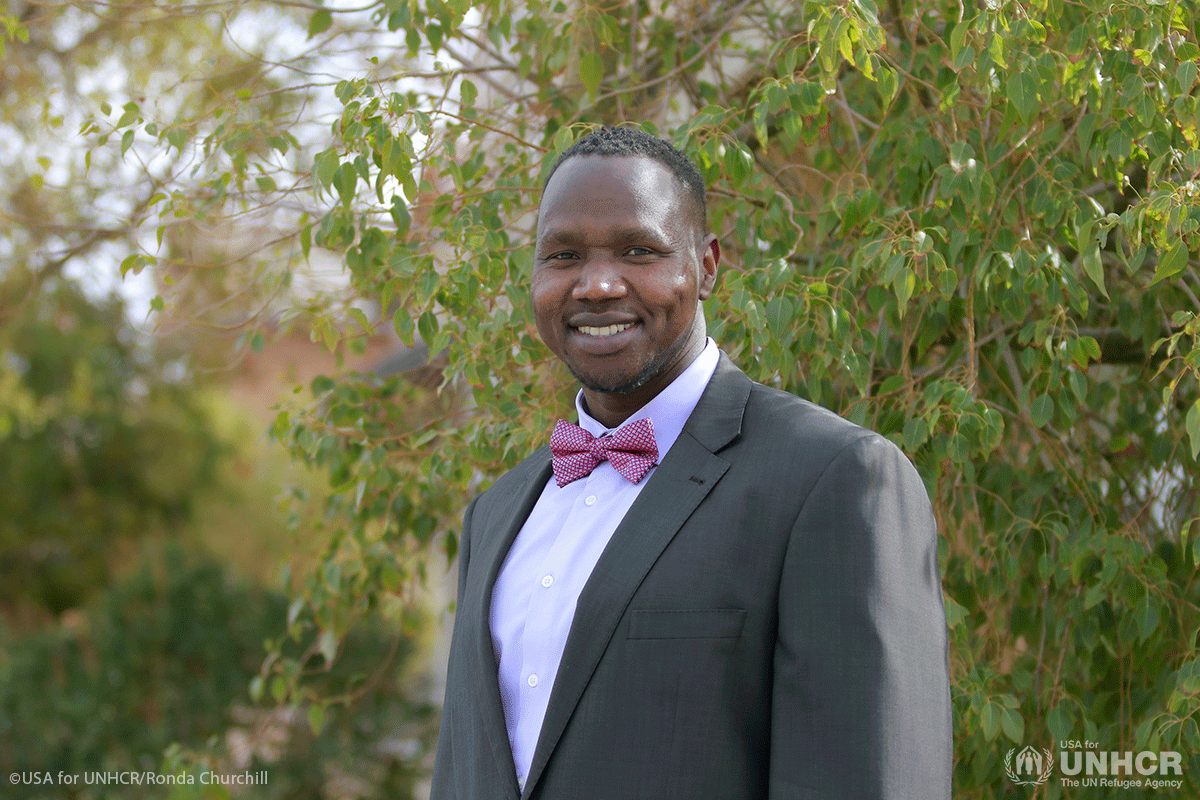 Can you share what life was like in South Sudan before you were forced to flee?
Can you share what life was like in South Sudan before you were forced to flee?
I remember as a child growing up in my home village – all my relatives lived together and I had a family that loved me. You could count on everybody in that village. As a kid my day-to-day responsibility was taking care of the family cattle. As young as five, I would go and tend the cattle all day – from sunrise to sunset. There was plenty of milk for me to drink and plenty of grain that we could eat. I had a good life back in Sudan.
Why did you have to flee?
In 1983, the second civil war in Sudan broke out and in 1987 my village was attacked. At the time, I was away from the village with the cattle. When the village was attacked, we had no place to go. I ran away from home, thinking that I was going to go home that evening. But that didn't happen. I didn’t return until almost 20 years later.
Where did you go?
I walked with my cousins. We just kept following the crowd. We walked for about three months to get to a refugee camp in Ethiopia. On the way many of the kids died of starvation, some died of disease. I remember not eating for two days and I was getting to the point where I sort of gave up on myself. But my cousin, who was 10 years old at the time, called me and said, ‘Biar, if you don't keep walking, you're going to be left behind just like him,’ pointing to a child who had died. So, for me it was my motivation, I was never going to be left behind. I had no shoes, no proper clothing. I just kept walking.
Biar lived in a refugee camp in Ethiopia for four years and was once again forced to flee when violence threatened the region in 1991. He was 10 years old. He found refuge in Kenya and lived for the next nine years at the Kakuma refugee camp.
How did you get from Kakuma to Las Vegas?
In 1998, the International Organization for Migration and the U.S. State Department came to Kakuma and said that some Lost Boys of Sudan were going to the U.S. as refugees.
I had to write my life story down. Then I went through the interview process and background checks. Then I had a medical check. In 2000 I did my [resettlement] interview. And then in April 2001, I was informed that I was going to be resettled in Las Vegas, Nevada.
I had 36 hours of flights before arriving in Las Vegas. I don't even remember if I slept the night I arrived. I just kept thinking, ‘I grew up in the camp, and now I’m thrown in Las Vegas.’ I felt like I was on a different planet.
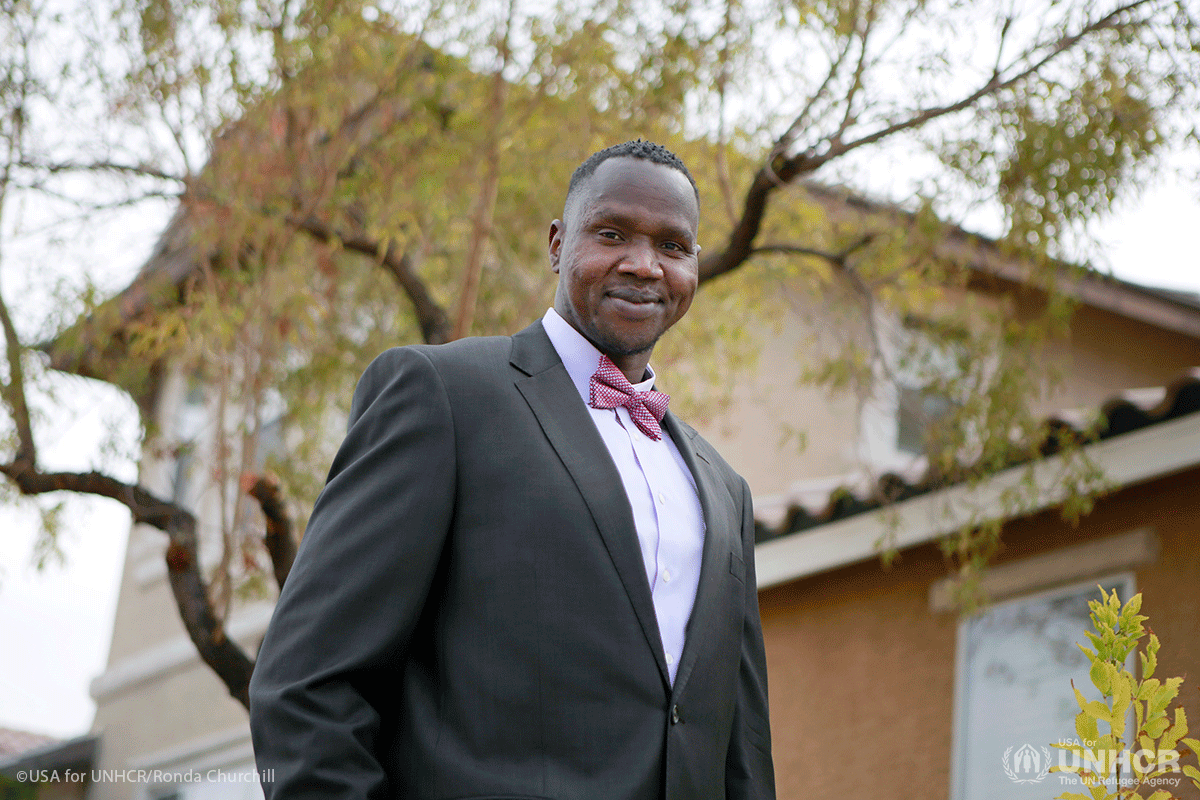
What were your goals when you arrived to the U.S.?
I just knew that I wanted to be employed right away. My first job was as a janitor at the Venetian Casino and I worked from midnight until eight in the morning. I also wanted to make sure I always had plenty of food. Growing up in a refugee camp, a luxury meal would be rice and beans if you could get your hands on it. That would be like eating steak and lobster here. I’m 6’7” and weighed only 160 pounds when I arrived to the U.S.
The other goal was to make sure that I got an education. I wanted to go to school because I felt that was going to be the best way for me to make the most impact and be able to help more people. And in America, these opportunities are here. So, I was able to go to school. I got an associate degree, then a bachelor's degree in accounting and then an MBA.
Where did you find the motivation to keep going?
I'm here [in the U.S.], I'm the one percent. Because 99 percent of the refugees are still in the camp 20 years later. I want to succeed, so that I can not only help my immediate family but I can be the voice for refugees wherever they are.
And that's what I do, I'm a refugee advocate. I talk to kids, to college students and share that it doesn't matter where you start in life. You can be janitor like me, but you don't have to stay there. You've got to use that as a stepping stone to get to the next position. As a refugee, people look up to me and I take it upon myself to be the voice for the 80 million people that are displaced and looking for a home.
Why is the U.S. refugee resettlement program important?
It’s important and let me use Kakuma as an example. The camp opened back in 1992 and 29 years later it is still open. You’re talking about two generations with no opportunities. Resettlement is important because you're giving people that have been in camps for decades a chance. You're giving them a chance where they can actually live a life worth living.
This year, you’ll have been in the United States for 20 years. As a former refugee and an American citizen, how do you think Americans can better support refugees?
There are a lot of things that Americans can do to help refugees. First would be to welcome refugees. Refugees are no different than any other Americans. Our background may be different, but our goals and aspirations are the same. We're not looking for a handout, we just want the opportunities that are here.
How can you help people like Biar?
We are in the midst of the largest global refugee crisis in history. Nearly 80 million people are currently displaced because of war, violence and persecution. We need to take action. Add your name to the petition to support the Biden Administration renewing our commitment to refugees and robustly increasing annual U.S. refugee admissions.
